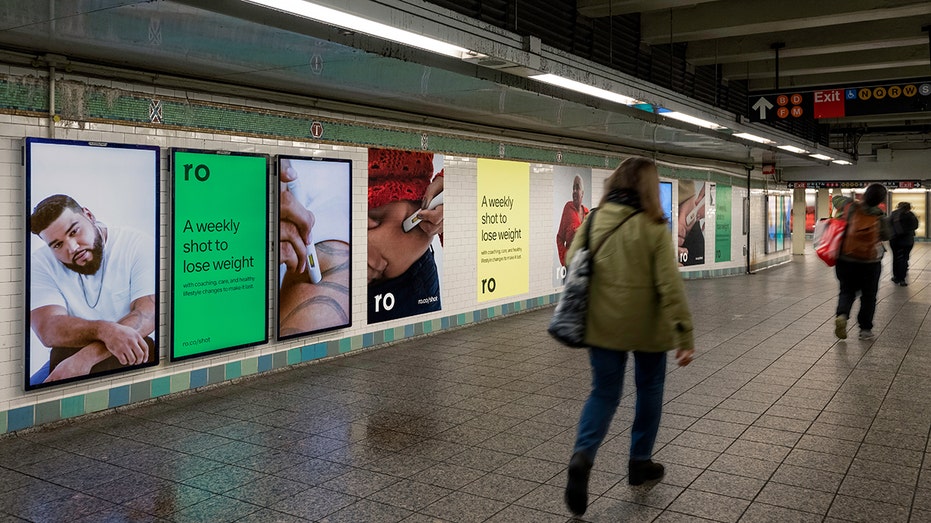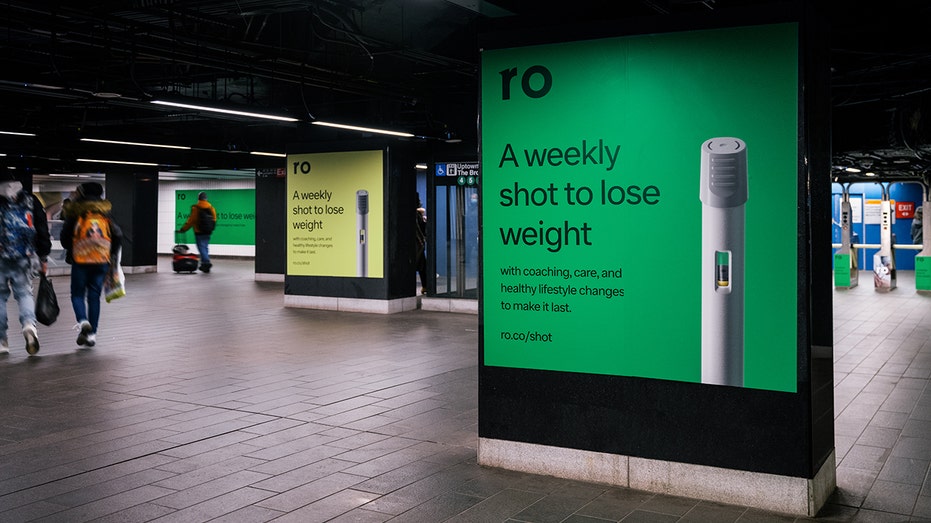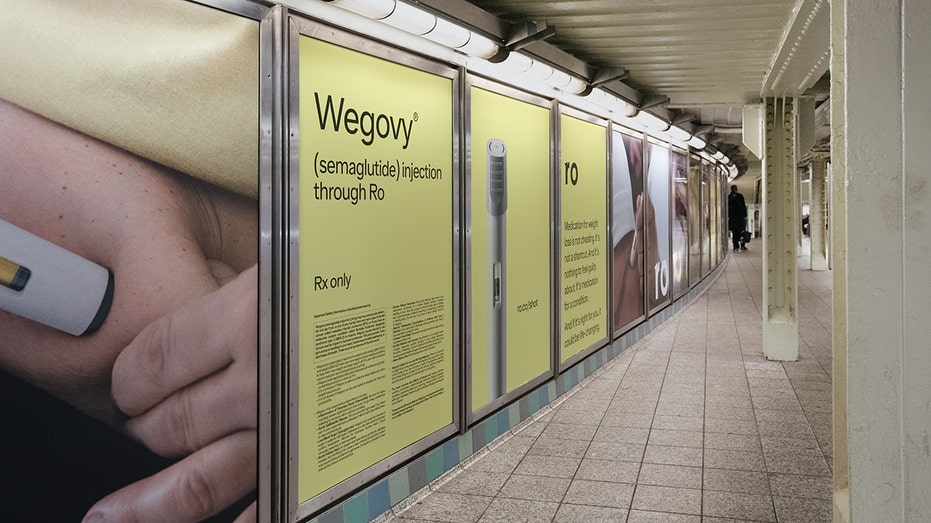Seeing more weight-loss drug ads? Here's why
Telehealth provider Ro marketing Wegovy by peppering ads in New York City's subway system
Ozempic, Wegovy help with weight loss but the rebound is real: Dr. Nicole Saphier
Fox News medical contributor Dr. Nicole Saphier discusses the dangers of using the diabetes drug Ozempic for weight loss on 'The Big Money Show.'
Telehealth company Ro is pushing a new marketing campaign aimed at destigmatizing obesity care. If you're a New Yorker, you've likely seen it.
Ads for its Body Program, which offers patients access to highly sought-after obesity treatments such as Ozempic and Wegovy, have been plastered throughout the city's subway system. This includes turnstiles, wall boards and other displays across the Times Square and Grand Central stations.
Wegovy and Ozempic are the same medication – semaglutide – but they have different dosages and FDA-approved intended uses.
Ozempic was approved by federal health officials in 2017 and marketed for medical use in the treatment of Type 2 diabetes "with weight loss as a secondary effect of the drug’s effects and mechanism of action."
WEGOVY, OZEMPIC: THE BARRIERS TO ACCESSING THESE WEIGHT LOSS DRUGS
Four years later, Wegovy was approved for chronic weight management in adults who are obese or overweight and have at least one weight-related condition such as high blood pressure, Type 2 diabetes or high cholesterol, according to the FDA.
The ads promote "a weekly shot to lose weight" accompanied by pictures of people injecting themselves. Underneath, the ad continues: "with coaching, care and healthy lifestyle changes to make it last."
Ro said in a March Medium post that the ads specifically spotlight "the moment of injection" while also "sharing evidence about the efficacy, risks, and side effects as well as underscoring the lifestyle changes we know are necessary to see long-lasting results."

Ro places ads for its Body Program in the Times Square subway in New York.
Some of the ads specifically mention Wegovy which, along with Ozempic, surged in demand after celebrities and high-profile figures touted their weight-loss effects last year.
Dr. Christopher McGowan, a North Carolina-based gastroenterologist and obesity medicine specialist, told FOX Business that he strongly advocates raising awareness of effective treatments to combat the widespread epidemic of obesity. He said that transparency about these drugs is "vital," especially given the way they are presented, discussed and commercialized.
"The public often learns about Wegovy, Ozempic and Mounjaro through celebrity comments, social media exposure and misleading advertisements, which may distort their perception," McGowan said. Mounjaro, manufactured by Eli Lilly, is only approved by the FDA for treating Type 2 diabetes; its website says that it is not a weight-loss drug.
Novo Nordisk, which manufactures Wegovy and Ozempic, faced a temporary nationwide shortage as a result. On Thursday, the Danish drugmaker raised its full-year sales and operating profit outlook due to Wegovy prescription trends in the first quarter and higher full-year sales expectations for both Wegovy and Ozempic.
Novo Nordisk told FOX Business that the company does not sell "semaglutide for the purposes of compounding with other products."
"Practices involving the sale and advertising of compounded "semaglutide" are not affiliated with the brands for which Novo Nordisk holds the FDA approval and marketing rights," the company said.
| Ticker | Security | Last | Change | Change % |
|---|---|---|---|---|
| NVO | NOVO NORDISK A/S | 48.43 | -0.80 | -1.63% |

Ro places ads for its Body Program in the Grand Central subway in New York. (Ro)
DIABETES-RELATED WEIGHT-LOSS DRUGS FACING SUPPLY ISSUES AMID VIRAL TREND
The goal of the marketing campaign, according to Ro, is to start "an important, sometimes difficult, conversation focused on destigmatizing obesity as a condition," while also highlighting a new treatment "that may, for the first time, be a real solution for millions of people," according to the Medium blog post.
Ro said it wants to "shatter the misconception that medication for weight loss is cheating," according to the March post.
The ads were intentionally created to be "unapologetic about the fact that obesity is deserving of effective treatments and high-quality health care just like any other chronic condition," Ro said.

Ro places ads for its Body Program in the Times Square subway in New York. (Ro)
The company touted on its website that adults who use Wegovy can lose up to 15% of their body weight in a year on average along with healthy lifestyle changes.
"With over 100 million Americans affected by obesity and limited treatment options available until recently, it is crucial to promote genuinely effective solutions, such as GLP-1 medications like Wegovy," McGowan said.
WEIGHTWATCHERS' STOCK SOARS AFTER SEQUENCE DEAL CLOSES
These drugs aren't cosmetic treatments or quick fixes but rather "powerful, long-term injectable therapies designed to address the chronic disease of obesity," according to McGowan, and "demand close monitoring, robust nutritional support and expert medical supervision."
Eli Lilly is a 'play' in Type 2 diabetes and obesity: Sam Waksal
Graviton Biopharmaceuticals Holdings CEO Sam Waksal argues that there will be 'great growth' in the pharmaceutical industry.
"I frequently encountered patients requesting ‘that weight loss shot’ without a comprehensive understanding of its implications," he continued. "It’s particularly concerning when individuals without obesity seek these treatments solely for cosmetic purposes."
GET FOX BUSINESS ON THE GO BY CLICKING HERE
"Overall, while the advertising itself isn’t inherently harmful, it’s contributing to the ongoing hype around these drugs and doesn’t address the complexity of chronic obesity and the medical expertise needed to treat it effectively."






















